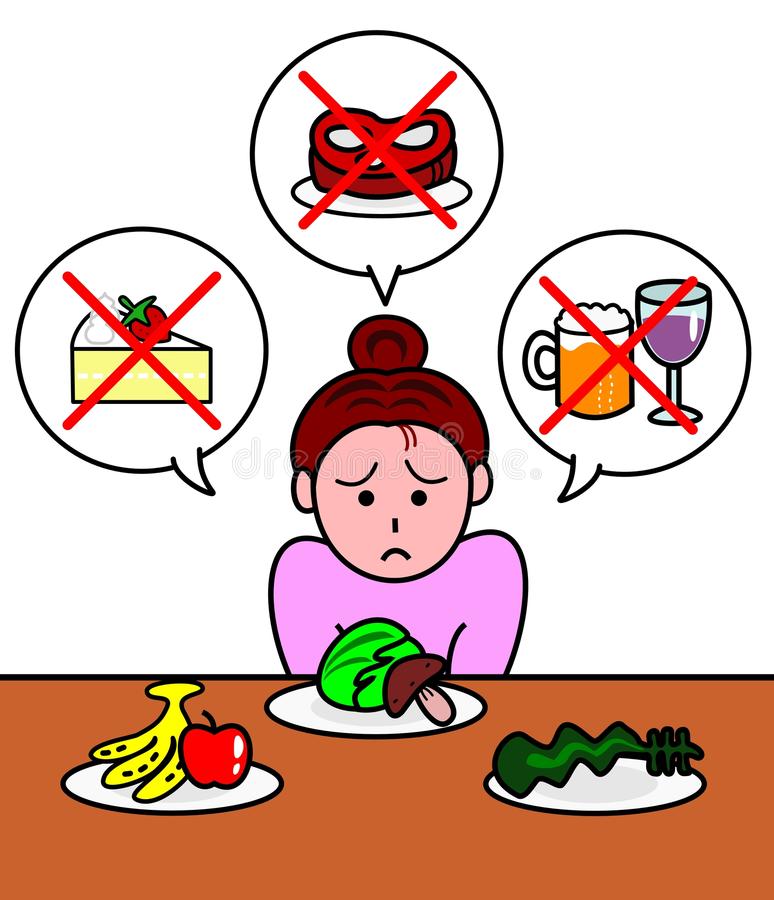Many people adopt a restrictive diet for various reasons, such as weight loss, improving their health, or religious and cultural beliefs. While some restrictive diets may offer short-term benefits, they can also have several negative consequences on both physical and mental health in the long run.
What is a restrictive diet?
A restrictive diet is a type of eating pattern that involves limiting or eliminating certain foods or food groups from the diet.
Some common examples of restrictive diets include:
- Low-carbohydrate diets: These diets limit or eliminate foods high in carbohydrates, such as bread, pasta, rice, and sugar, in favor of foods high in protein and fat.
- Gluten-free diets: These diets eliminate gluten, a protein found in wheat, barley, and rye, to manage celiac disease, gluten intolerance, or other health conditions.
- Vegan diets: These diets exclude all animal products, including meat, fish, dairy, and eggs, for ethical, environmental, or health reasons.
- Ketogenic diets: These diets are high in fat, low in carbohydrates, and moderate in protein, which forces the body to burn fat for energy instead of carbohydrates.
- FODMAP diets: These diets eliminate foods that are high in fermentable carbohydrates, which can trigger digestive symptoms in people with irritable bowel syndrome (IBS).
Consequences of a restrictive diet:
- Nutrient deficiencies: Restricting certain foods or entire food groups can lead to nutrient deficiencies. For example, a vegan diet that doesn’t include enough plant-based sources of protein can lead to protein deficiency, while a low-carbohydrate diet can result in a lack of essential vitamins and minerals found in fruits, whole grains, and legumes.
- Slower metabolism: Restrictive diets that significantly reduce calorie intake can cause the body to go into starvation mode, which slows down the metabolism. This can make it harder to lose weight and maintain a healthy weight in the long run.
- Increased risk of eating disorders: Strict food rules and extreme dietary restrictions can trigger disordered eating behaviors and increase the risk of developing eating disorders such as anorexia nervosa, bulimia nervosa, and binge eating disorder.
- Low energy levels: A restrictive diet can lead to low energy levels and fatigue due to insufficient calorie intake and nutrient deficiencies. This can affect daily activities, exercise performance, and overall quality of life.
- Mood changes: A restrictive diet can also affect mental health and cause mood changes. Low-carbohydrate diets, for example, have been linked to irritability, mood swings, and depression.
- Social isolation: A restrictive diet can make social situations, such as eating out with friends or family, challenging and isolating. This can lead to feelings of anxiety, depression, and loneliness.
- Increased risk of chronic diseases: Some restrictive diets that eliminate entire food groups may increase the risk of chronic diseases such as heart disease, cancer, and osteoporosis.
Red flags to look out for when following a restrictive diet
- Obsessive thoughts about food and weight: Constantly thinking about food, weight, and body image can be a sign of an unhealthy relationship with food.
- Avoidance of social situations involving food: Refusing to attend social gatherings or events that involve food or feeling anxious about eating in front of others may be a sign of a restrictive diet.
- Extreme food rules and restrictions: Following strict food rules, eliminating entire food groups, or severely restricting calories can be a sign of a restrictive diet that can lead to nutrient deficiencies, slow metabolism, and disordered eating behaviors.
- Feeling guilty or ashamed about eating: Feeling guilty or ashamed about eating certain foods or exceeding a certain calorie limit can be a sign of an unhealthy relationship with food.
- Preoccupation with body weight and shape: Constantly weighing oneself, measuring body parts, or obsessing over clothing sizes can be a sign of a restrictive diet that can lead to body dysmorphia and low self-esteem.
- Physical symptoms of malnutrition: Nutrient deficiencies, such as anemia, brittle nails, hair loss, and fatigue, can be a sign of a restrictive diet.
If you or someone you know is experiencing any of these red flags, it’s important to seek help from a healthcare professional or a registered dietitian to address any underlying issues and develop a healthy and sustainable eating pattern.
In conclusion, while a restrictive diet may offer short-term benefits, it can have negative consequences on both physical and mental health in the long run. It’s important to adopt a balanced and sustainable eating pattern that meets individual needs and preferences and provides all the essential nutrients needed for optimal health. It’s important to consult with a healthcare professional or a registered dietitian before starting any restrictive diet to ensure that it meets individual nutritional needs and preferences and does not compromise overall health. They can also help you develop an informed healthy and sustainable eating plan.
See you soon
